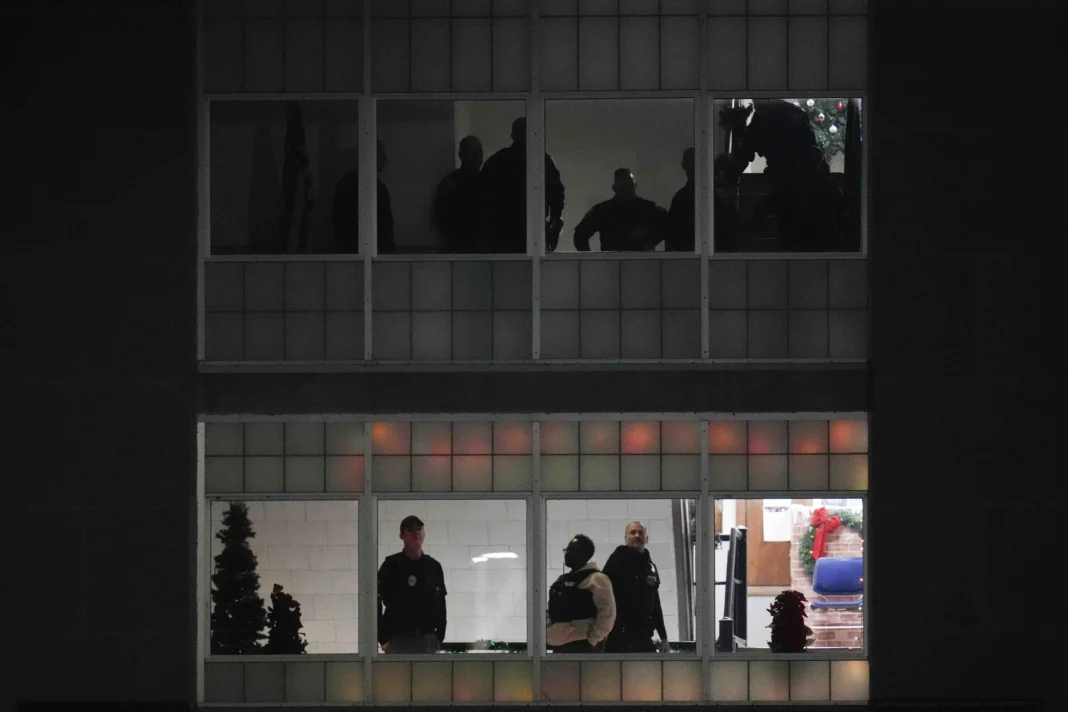Indiana Executes Joseph Corcoran, Marking First State Execution in 15 Years
In a move that has sparked controversy and debate, the state of Indiana carried out its first execution in 15 years early Wednesday morning. Joseph Corcoran, a 49-year-old man convicted of killing four people, including his own brother and his sister’s fiancé, was put to death by lethal injection at the Indiana State Prison in Michigan City.
The decision to resume state executions in Indiana was announced last summer by Governor Eric Holcomb, citing a scarcity of lethal injection drugs nationwide. Corcoran’s execution marks the 24th in the U.S. this year.
The execution process was shrouded in secrecy, with limited details provided by the state and no media witnesses allowed under state law. However, Corcoran was allowed to choose a reporter from the Indiana Capital Chronicle as one of his witnesses.
According to attorney Larry Komp, who was one of four witnesses present, the execution took eight minutes and Corcoran’s last words were, “Not really. Let’s get this over with.” However, Komp stated that he could not hear anything or see the full execution due to his limited view.
Indiana and Wyoming are the only two states in the U.S. that do not allow members of the media to witness state executions, according to a recent report by the Death Penalty Information Center. Corcoran’s execution was only permitted to be viewed for six minutes before the viewing room blinds were closed.
Corcoran was convicted for the July 1997 shootings of his brother, his sister’s fiancé, and two other men. Court records show that Corcoran was under stress at the time due to the impending marriage of his sister, which would mean he would have to move out of the family home.
While in jail for these killings, Corcoran boasted about also killing his parents in 1992, but was acquitted of those charges. His attorneys have argued for years that he suffers from severe mental illness, which affects his ability to understand and make decisions.
Despite multiple appeals and requests to halt his execution, Corcoran’s sentence was never overturned. His attorneys even asked the U.S. Supreme Court to intervene, but their request was denied late Tuesday, leaving Holcomb as his last hope for a commutation of his death sentence.
The governor’s office released a statement following the execution, stating that Corcoran’s case had been reviewed repeatedly over the years and his sentence had never been overturned. Holcomb’s office also pointed out that this was the first state execution in Indiana since 2009, with 13 executions being carried out by federal officials in 2020 and 2021 at a federal prison in Terre Haute.
The decision to resume state executions has been met with opposition from religious groups, disability rights advocates, and other activists. A small group of protesters gathered outside the Indiana State Prison on Tuesday night, holding a candlelight vigil and praying for an end to the death penalty.
Bishop Robert McClory of the Diocese of Gary led the prayers, stating that there is no need for the government to have the power to execute its citizens. Other death penalty opponents also demonstrated outside the prison, holding signs that read “Execution Is Not The Solution” and “Remember The Victims But Not With More Killing.”
Corcoran’s last request was for a pint of Ben & Jerry’s ice cream as his final meal. His wife, Tahina Corcoran, who was allowed to visit him before the execution, stated that they discussed their faith and shared memories of their time together, including attending high school. She also reiterated her plea to the governor to commute her husband’s sentence, stating that he is “very mentally ill” and may not fully understand what is happening to him.
The decision to resume state executions in Indiana has raised questions about the use of lethal injection drugs and the ethics of the death penalty. With pharmaceutical companies refusing to sell their products for this purpose, states have turned to compounding pharmacies, which can cause intense pain and suffering for the condemned.
While the debate over the death penalty continues, Joseph Corcoran’s execution has brought attention to the flaws and controversies surrounding capital punishment. As the country continues to grapple with this issue, it is important to remember the victims and their families, and work towards building a society where the death penalty is no longer necessary.


